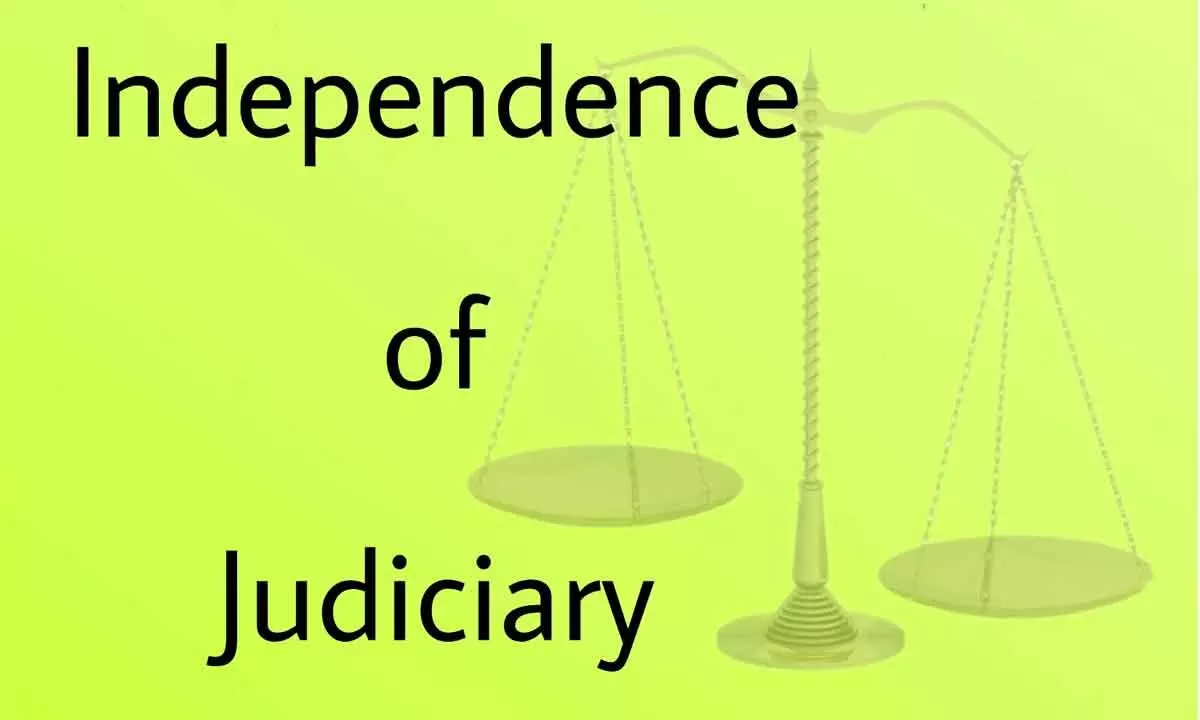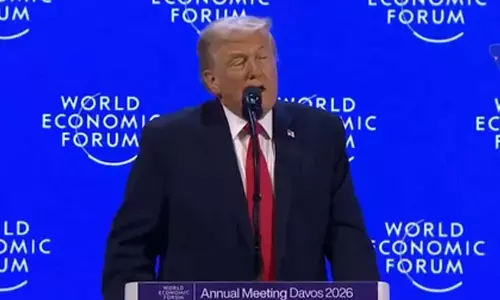Need to maintain independence of judiciary

Union Law Minister Kiren Rijiju on Monday trained guns on opposition party members who alleged that the Narendra Modi government was trying to take control of the judiciary.
Union Law Minister Kiren Rijiju on Monday trained guns on opposition party members who alleged that the Narendra Modi government was trying to take control of the judiciary. The Law Minister went ahead and emphasised that the Modi government would run the country by the Constitution and the independence of the judiciary would not be compromised. This is rather a belated response to the 'judicial scrutiny' of his statements in the recent past attacking the judiciary and the collegium system that has been in existence for the selection of judges to the Apex Court. In fact, the Law Minister's attitude is in tune with that of his masters and he could only be said to be serving their interests in raising the issue repeatedly to accuse the judiciary of zealously guarding its powers.
The Supreme Court has not taken kindly to the attacks on its functioning and has reminded the Minister of the powers of the judiciary and its independence. It has also emphasised on the Constitutional powers it has and its responsibilities. The Law Minister could be said to have made a 'U' turn in this aspect when he reiterated that both the pillars of democracy need to be within their place without overlapping the other's powers. "We cannot even think about this. When Prime Minister Modi says he will run the country by the Constitution, then it has to be so and there are no two ways about it," he said. In addition, Rijiju said that the government had taken many steps to strengthen the judiciary. He said some political parties were trying to portray that the Central government was compromising the independence of courts and it was not the case.
The Minister should know that there cannot be any friction between the two healthy organs of our democracy. Both are independent and both work within the framework of the Constitution. There cannot be any effort by one or the other to grab the powers of the other. But, as the Supreme Court rightly observed several times, the decision-making processes could be examined and questioned. The Apex Court never stated that it would decide what the executive should do or should not do. It is heartening to note that the Minister stated that "PM Modi has always said that the Constitution is the most sacred book and the country will be run by the Constitution." Of course, he had to go a step further to state that a committed judge does not mean the one committed to the executive which is rarely the case.
Even in major verdicts that affect the country one way or the other, the judges might difer in their views but it is more due to the interpretation of the laws and their applicability. As is well known, in countries with written constitutions, the judiciary's independence has become even more important. The government has been given broad powers in the written Constitution to carry out the duties of government. However, if the welfare philosophy is enshrined in the Constitution, the government is required to implement policies that promote the people's socio-economic growth. Here is where it is apprehended that the political authority of the government could be misused. Then it is up to the judiciary to impose necessary checks and balances on it so the processes are not abused.














